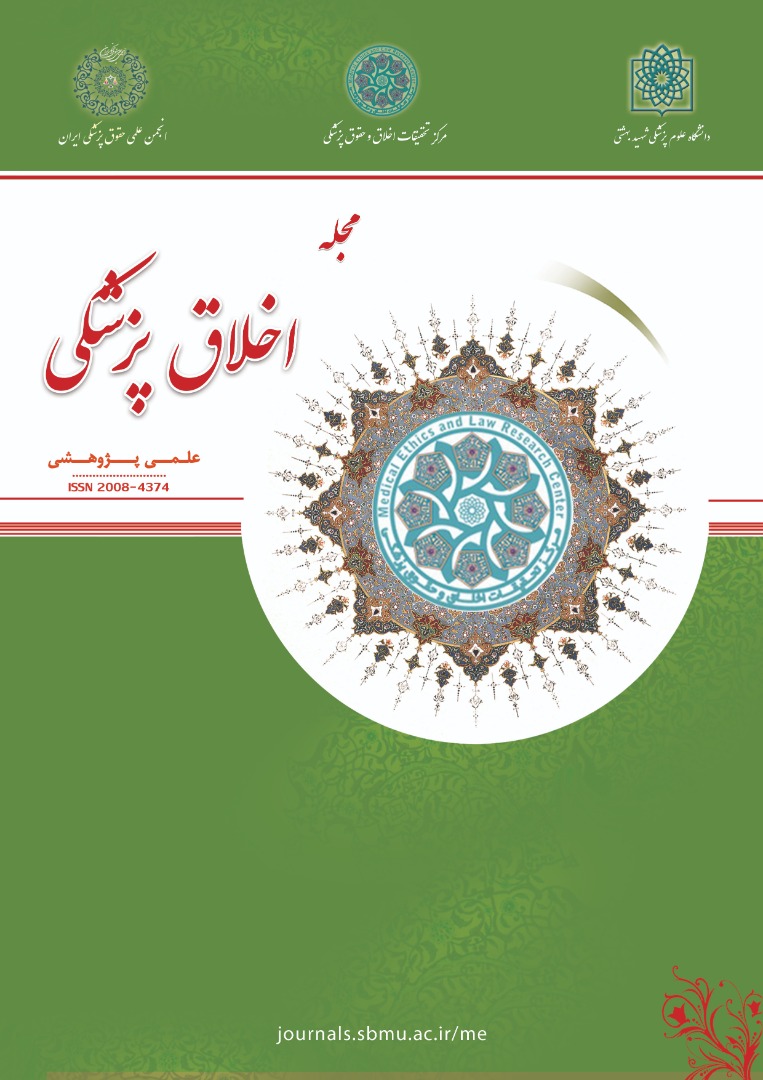Defining the Pedagogical Parameters of Islamic Bioethics
مجله اخلاق پزشکی - علمی پژوهشی,
دوره 2 شماره 5 (1387),
28 June 2016
,
صفحه 25-44
https://doi.org/10.22037/mej.v2i5.12184
چکیده
Secular bioethics has only recently begun to take religious perspectives seriously. Religion and Medicine courses in a number of universities across North America have incorporated Christian and Jewish perspectives for some time now, but Islamic, Buddhist and Hindu perspectives are only now gaining recognition. This late inclusion of Islamic perspectives can be partially attributed to the lack of materials in English on Islamic bioethics. Moreover, those materials that have been published actually deal with juridical-religious opinions rather than ethical deliberations based on principles and rules as developed in Islamic legal sciences. Here and there in these writings one reads references to the principle of “public interest” (maslaha), without any elucidation about its function, either as a principle in legal theory or as a rule of utility or beneficence that promotes the good in ethical decision-making. Instead, we have a plethora of juridical opinions (fatawa, plural of fatwa) deduced from the revealed texts on issues in biomedicine like abortion, end of life decisions, and more recently, genetic engineering or stem cell research, without any ethical discussion on the rightness or wrongness of the act in its medical scientific and clinical practical settings.
- Bioethics
- Medical ethics
- Islamic jurisprudence
ارجاع به مقاله
مراجع
-Hourani, George F., Reason and Tradition in Islamic Ethics (Cambridge: Cambridge University Press, 1985); Majid Fakhry, Ethical Theories of Islam (Leiden: E. J. Brill, 1991)
-George F. Hourani, Islamic Rationalism: The Ethics of ‘Abd al-Jabbar (Oxford: Clarendon Press, 1971),
- In her recently published work entitled Islamic Medical Ethics in the Twentieth Century (Leiden: E. J. Brill, 1993) Vardit Rispler-Chaim analyses fatwa literature and claims that there are no specifically Islamic principles that undergird the legal-religious decisions among Muslim jurists. A number of articles on abortion also follow the same kind of legalistic analysis of the biomedical issues. [Jon, my hands are limited in Iran to check these out and list them here.]
- See, for examples, the essays by Sherine Hamdy and Debra Budiani and Othman Shibly in this volume.
- George Hourani, Reason and Tradition in Islamic Ethics, p. 17 introduces the latter distinction in deontological norms.
- چکیده مشاهده شده: 211 بار
- PDF دانلود شده: 104 بار
